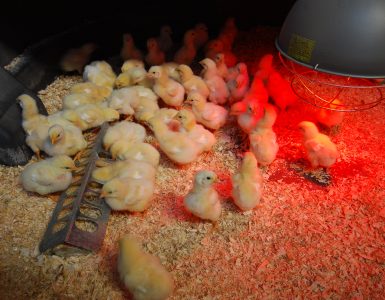On Nov. 24, Parliament passed Bill C-18, the uninformatively named “Agricultural Growth Act.” Typical of the Conservative modus operandi, the government has used its majority in the House of Commons to push through sweeping changes to Canadian law in the form of an omnibus bill, allowing them to quash the debate that multiple bills would allow.
The omnibus bill is not completely bad, but it has key provisions that are bad for farmers and good for the corporations that profit off them. Which is why it has been roundly condemned by farmer organizations like the National Farmers Union (NFU).
The “Agricultural Growth Act” makes changes to nine different pre-existing pieces of legislation, some of which were not friendly to farmers in the first place.
The Plant Breeders’ Rights Act, brought into law by the Mulroney government nearly 25 years ago, is a perfect example. The name of the law suggests something warm and fuzzy: protecting rights. But this is deceptive; the Plant Breeders’ Rights Act actually stripped rights away from farmers, while granting whole new prerogatives—like the ability to patent seed—to private corporations like Monsanto.
For most of history farmers have bred and saved their own seed, making adjustments to gradually increase yield and disease resistance, and they have shared that seed with others. Farmers could save and plant their seed freely. In the 20th century, Canada also invested in publicly-funded seed breeding for public benefit.
But, as the National Farmers Union argues, Bill C-18 is part of a broader program that puts seed-breeding, and the benefits of that research, into the hands of private corporations. In the omnibus bill, farmers’ right to save seed is explicitly reduced to a “privilege”—one that can easily be removed in the future.
At the crux of the NFU’s opposition to Bill C-18 is an international convention called UPOV (from the International Union for the Protection of New Varieties of Plants). Canada currently uses the 1978 version of the UPOV convention, which recognizes a farmer’s right to save and reuse seed from their own harvest. But with Bill C-18, Canada will use a different version of that convention (UPOV ‘91), which requires that farmers get permission to save the seed they’ve grown themselves.
“UPOV ’91 is one of the most farmer-unfriendly mechanisms we have ever seen,” warns Jan Slomp, NFU President.
The deeper implications of all this may not be apparent to non-farmers, but the implications are very real and very troubling. Bill C-18 puts a huge amount of power in the hands of a few multinational corporations, like Monsanto, and strips away most of the remaining protections that farmers have.
These changes also make farmers more vulnerable to predatory litigation by seed companies. You may have heard the case of Percy Schmeiser, the Saskatchewan farmer who was sued by Monsanto in 1998. They alleged they had found their own patented canola growing on his land. Schmeiser argued that the canola had blown there (since tiny canola seeds and pollen are easily blown long distances).
Though Schmeiser later won the Gandhi Award for his efforts to protect farmer rights to save seed, he also accumulated legal bills of hundreds of thousands of dollars. Schmeiser became an example for both sides. He was acclaimed for his defense of seed saving, but surely other farmers have quietly paid settlements to Monsanto to avoid being dragged into a protracted legal battle.
Yet another problem with Bill C-18, explains NFU Vice President Ann Slater, is that it “gives seed companies the possibility to create monopolies to control future breeding by others through the Act’s ‘essentially derived’ clause, which gives breeders full control of any new varieties that exhibit characteristics of a company’s already-protected variety.”
In other words, a farmer who breeds their own seed with a quality similar to a patented variety may find that theyend up paying royalties, just because companies like Monsanto have the resources for legal battles.
A farmer’s right to save seed goes back 10,000 years. Let’s not allow the Conservative government to destroy it so a few big companies can increase their profits and control.







